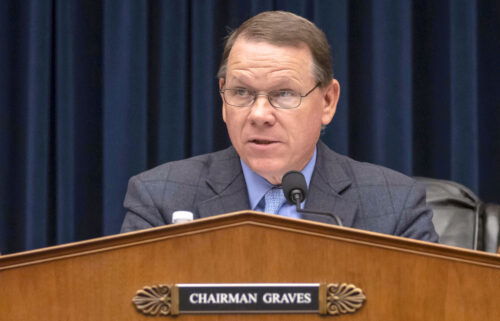Buchanan County Commission eyes 2024 vote on senior real property tax relief

By Cameron Montemayor
Buchanan County Commissioners are poised to develop an ordinance for senior property tax relief following approval of amended legislation by Missouri Gov. Mike Parson last week.
Senate Bill 756, sponsored by Sen. Tony Luetkemeyer, R-Parkville, clarifies language and definitions that grant real property tax credits to senior citizens ages 62 and older.
While implementing the program, called the Homestead Property Tax Credit, is unlikely for 2024 in Buchanan County, commissioners are expected to vote on the ordinance by the end of this year for 2025.
“Development of a county ordinance and application process will require collaboration and resources from multiple elected officials, including the county commission, collector, assessor, recorder of deeds and county clerk and the several political subdivisions within the county,” commissioners said in a statement to News-Press NOW.
Senior property owners are hopeful the second time is the charm for getting a property tax relief measure in place after incomplete language — and unknowns about the impact of lost revenue for local taxing entities — forced commissioners to hold off on implementing legislation passed in July 2023.
“A lot of retirees nowadays can’t actually retire. They have to continue to work just to make it work,” St. Joseph resident and senior Larry Werthmuller said.
For those fortunate enough to be able to retire, high costs for groceries, utilities and insurance are putting increased pressure on those living on fixed incomes. In extreme cases, it’s reportedly led to some across the state being taxed out of their homes.
“The ones that have some stocks may see extra money there, but people on fixed incomes as such don’t see an increase at all. So it would help them some,” Werthmuller said.
The bill now establishes the initial base year as the year a taxpayer turns 62 or the year an ordinance is passed, to prevent the credit from being retroactive. Currently, real property taxes are assessed at 19% of the property’s true value in money.
“The credit will only apply to future increases in real property taxes. It will not reduce the current real property tax amount owed by senior citizens or give a refund of taxes previously paid,” the Buchanan County statement read.
The coming months also will see work and input from local taxing entities like the school district, fire departments, libraries and the city to determine the impact of a credit program on their revenues.
Recently passed legislation clarifies that the tax credit must apply to all taxing jurisdictions within a county, addressing a question shared by county officials when Senate Bill 190 — the previous tax bill — was passed.
Fiscal analysis notes in Senate Bill 756 by Buchanan County SB 40 Board officials in April indicate the impact on local entities is unclear.
“SB 756 will result in an unknown decrease in levy dollars for all political subdivisions in any county that chooses to enact it. It is the ‘unknown’ amount of decrease that is of significant concern,” board fiscal notes read.
A fiscal analysis of Senate Bill 190 projected the city could lose more than $100,000 during the next five years. The school district would stand to lose $636,000 while the Rolling Hills and St. Joseph library districts would lose close to $13,000 combined.
The amended bill also prevents any political subdivision impacted by the real property tax credit, not just a county, from increasing its tax levy to compensate for lost revenue.
“I had conversations not only with the Buchanan County Commission but also with the Platte County Commissioners. What it represents is a lot of the concerns that counties raised about the implementation of Senate Bill 190, Senate Bill 756 addresses and fixes those concerns,” Luetkemeyer said in June.
The impact of lost revenue in each county will depend heavily on the percentage of homeowners who are over 62 years old. In St. Joseph, roughly 16.5% of the population — more than 11,500 people — are age 65 or older according to census data.
“If we could have just a little bit of help and cut that property tax down for people,” St. Joseph homeowner Jenny O’Dell said. “A lot of people our age have already had to downsize.”
She sympathizes with struggling homeowners, especially those just trying to make it on their own.
“They’re widowed or whatever. I’m getting teary-eyed. How are they supposed to afford that?” she said.
Revised language in Senate Bill 756 allows counties to adopt reasonable procedures to carry out the measure, except changing the age requirement of 62 years old and the specified credit amount.
Many counties have established caps for residents with property valued over a certain amount. Residents of St. Louis County must have a home valued at no more than $550,000 to qualify for annual property tax credits.
Moving forward, if a resident is granted a credit, the resident’s tax liability will still increase to reflect the value of new construction or improvements if they are carried out on a home.
Citizens are encouraged to direct questions or concerns about a property tax credit program to the county.



